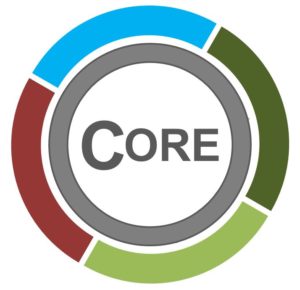
Before taking on new responsibilities, MRTs consider their own level of competence, the scope of practice and all relevant legislation and regulation
Evaluation of competence and scope
- For a given procedure or treatment, the outcomes should be the same for the patient, regardless of who performs the care.
- An evaluation of appropriateness includes the following questions1:
- Does the MRT have the requisite knowledge, skills and judgment to carry out responsibilities safely and effectively?
- Is this responsibility within the established scope of practice for an MRT?
- It is the duty of MRTs to ensure they have the necessary knowledge, skills and judgment to perform all of their responsibilities safely and effectively1,2.
- For responsibilities beyond their current level of competence, MRTs need to acquire additional knowledge and skills through education and training programs to ensure appropriate care
- MRTs are also responsible for being familiar with their scope of practice.
- MRTs determine whether a new responsibility falls inside or outside the established scope of practice for MRTs in their jurisdiction
- Questions concerning the MRT scope of practice are directed to provincial member association or regulatory body for clarification
Responsibilities outside the scope of practice
- For responsibilities that fall outside the established scope of practice, MRTs must take additional steps to ensure appropriateness.
- MRTs should be familiar with the legislation concerning the performance of responsibilities outside of their scope of practice in his/her province/jurisdiction
- Different provinces have made different provisions which may or may not allow for the delegation of responsibilities – legislation currently allows for delegation in all provinces except Quebec, Alberta and British Columbia
- If an MRT is uncertain about whether a task can be performed or not, an MRT should contact their provincial member association or regulatory body for clarification
- An MRT should also be confident that the request originates from a professional with the authority to delegate the responsibility in question, and that the other professional has carried out their responsibilities with regard to delegation.
- Any delegation or transfer of responsibility should be documented according to the requirements set out in provincial legislation and regulations.
Education and training
- In order to perform responsibilities beyond their current level of competence MRTs will need to undertake additional education/training to acquire the requisite knowledge skills and judgment.
- Training for new responsibilities can typically be obtained through one or a combination of:
- Continuing professional development courses
- On-site training
- Applications training
- Once acquired, any new education/training is documented in the MRT’s file
References
-
Federation of Health Regulatory Colleges of Ontario. An interprofessional guide on the use of orders, directives and delegation for regulated health professionals in Ontario. Available from: http://www.regulatedhealthprofessions.on.ca/orders,-directives,-delegation.html. [Accessed 30 Apr 2018]
-
Canadian Association of medical radiation technologists. Code of Ethics. CAMRT. June 2008. Available from: http://www.camrt.ca/mrt-profession/professional-resources/code-of-ethics/. [Accessed 3 Nov 2014]
